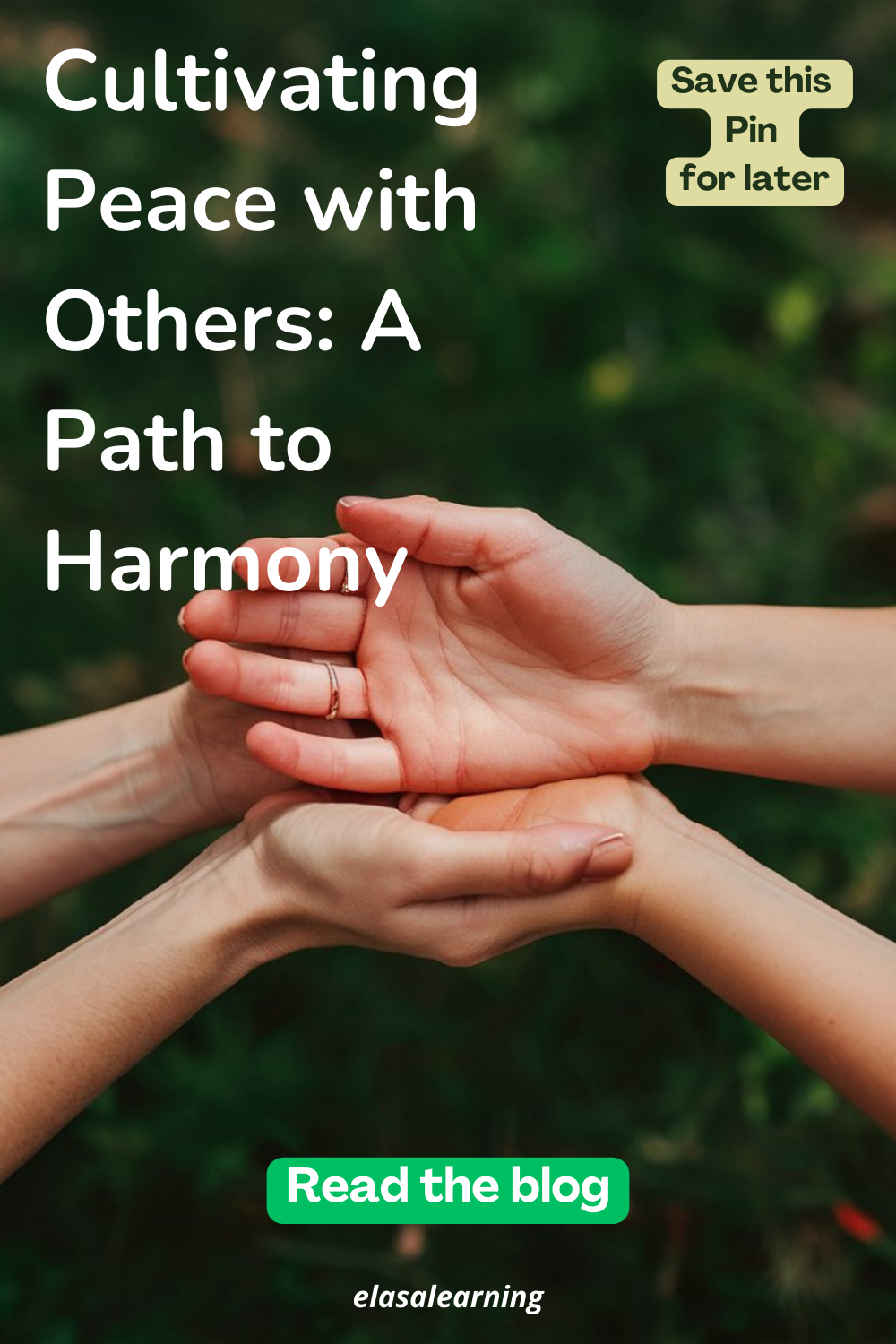
Cultivating Peace with Others: A Path to Harmony
by ElasaLearning
We recommend helpful products in our articles.
The content on this site is not intended to be a substitute for professional advice, diagnosis, or treatment.
Having peace with others is essential for a harmonious and happy life. When we strive to maintain healthy and respectful relationships, we create an environment of understanding and cooperation. It's important to remember that peace starts within us and reflects in our daily interactions.

The key to achieving peace with others is open and honest communication. Expressing our feelings clearly and respectfully can prevent many misunderstandings and conflicts. Additionally, listening attentively to what others have to say shows that we value their perspectives and opinions.

Empathy is another crucial component in building peace. Putting ourselves in others' shoes helps us better understand their emotions and motivations. This facilitates forgiveness and conflict resolution, strengthening bonds and promoting an environment of mutual trust.

We must also learn to choose our battles. Not every disagreement needs to turn into a major conflict. Sometimes, giving in or finding a middle ground can be the best way to maintain peace. Respecting differences and accepting that not everyone will think like us is an important step.

To put these concepts into practice, set aside time to reflect on your current relationships. Identify areas where communication can be improved and practice empathy in your daily interactions. Make a conscious effort to resolve conflicts calmly and respectfully. Small changes can make a big difference in promoting an environment of peace and harmony.

The key to achieving peace with others is open and honest communication. Expressing our feelings clearly and respectfully can prevent many misunderstandings and conflicts. Additionally, listening attentively to what others have to say shows that we value their perspectives and opinions.

Empathy is another crucial component in building peace. Putting ourselves in others' shoes helps us better understand their emotions and motivations. This facilitates forgiveness and conflict resolution, strengthening bonds and promoting an environment of mutual trust.

We must also learn to choose our battles. Not every disagreement needs to turn into a major conflict. Sometimes, giving in or finding a middle ground can be the best way to maintain peace. Respecting differences and accepting that not everyone will think like us is an important step.

To put these concepts into practice, set aside time to reflect on your current relationships. Identify areas where communication can be improved and practice empathy in your daily interactions. Make a conscious effort to resolve conflicts calmly and respectfully. Small changes can make a big difference in promoting an environment of peace and harmony.
Recommended



